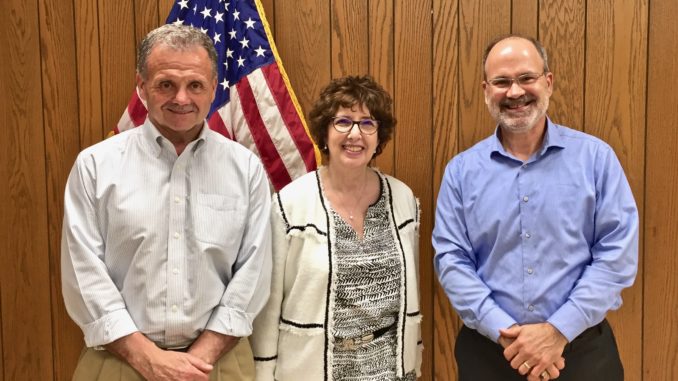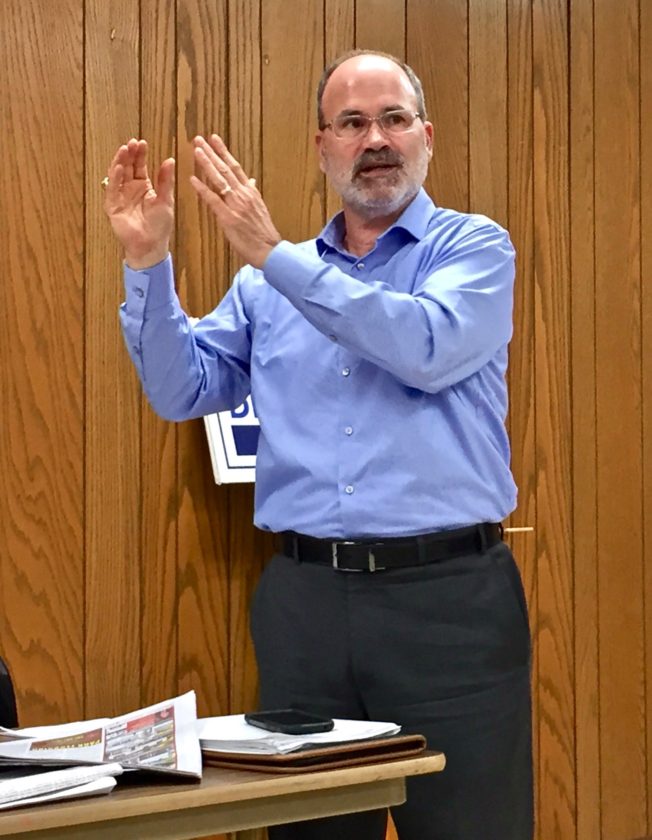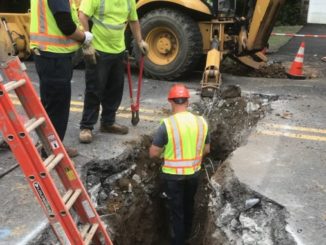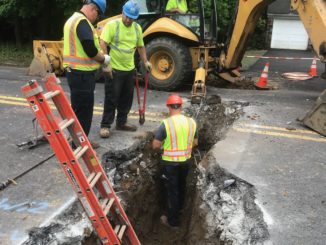
CLOSTER, N.J.—On Monday evening, April 15, dozens of local residents and numerous political office holders attended a public forum regarding concerns about the levels of lead that may be in our water system.
Letters from Suez Water Technologies and subsequent news articles have brought this concern to the forefront, as it has become widely known that utility pipes, connecting gooseneck joints, private water lines, lead solder, even indoor plumbing fixtures, may contribute to lead levels that exceed government safety standards.
The panel discussion, held at the Senior Citizen building in Closter, featured Dr. Mark Maddaloni, long-time senior toxicologist for the Environmental Protection Agency as an expert in lead risk assessment, and currently a senior manager at Cardo ChemRisk. He was joined by Gary Brune, a policy manager at New Jersey Future, a nonprofit, nonpartisan organization that promotes sensible growth and infrastructure investments in the state. His specialties include the study of lead in drinking water.
Closter resident Adrienne Isacoff moderated the discussion, which was hosted by the Closter Democratic Club.
Dr. Maddaloni began his remarks by cautioning the audience that the community should not be in fear of having a major crisis like the situation that has plagued Flint, Michigan. However, he insisted that concern is appropriate since the Center for Disease Control states there is no safe level of lead in the bloodstream. He explained that significant reductions of lead occurred in the 1970s and ’80s when lead in gasoline was eliminated and lead-based paints became illegal. However, lead service lines still exist in areas of Bergen County and elsewhere that can transmit unacceptable levels of lead into a property owner’s water system.
Suez has publicized that they will ascertain whether a property has a lead line coming into a home or business. If so, the company will provide a free water test. If not, testing can be done at the property owner’s expense to determine if lead is present from other points. Call 201-525-2338 or visit waterqualityNJ@suez.com.
Dr. Maddaloni explained that New Jersey has mandatory testing of blood for 1- and 2-year-olds to determine any levels of lead. But children until the age of 8 or more are particularly susceptible to the impact of lead as their brains and central nervous system form. Pregnant women, as well, are particularly affected by the presence of lead.
Gary Brune outlined the three areas where lead can enter a water system: first, through a service line owned by Suez that leads from the water main to the boundary of the private owner’s property; second, from the property line to the house; and third, within the indoor plumbing that may contain lead solder and affected fixtures. He explained that buildings built before 1930 are more likely to have lead somewhere in their system, homes built between 1930–1986 have a possible issue, and newer homes are less likely to have lead. Unfortunately, he said, records are not in good shape, and reiterated that there is no acceptable level of lead in the bloodstream. Suez has announced areas of Bergen and Hudson counties where it will begin replacing lead pipes first. Although some other nearby towns including Alpine, Old Tappan and River Vale have been listed as part of the expedited program, Closter is in the third tier of towns that may not see a backhoe for another few years.

Both Brune and Maddaloni recommended that concerned homeowners can purchase lead-certified filters, such as a specialized pitcher for daily drinking water. Each of the experts referred to an article by Michael Olohan in the Northern Valley Press on April 15 as containing a great deal of helpful information, some of which they learned for the first time shortly before the panel discussion. (See the story here.)
Suez representatives declined an invitation to participate in the forum, saying that they plan on holding town meetings at a later time when more information is gathered.



